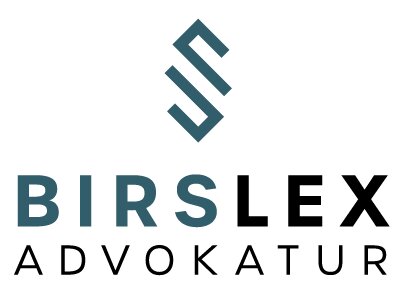Best Whistleblower & Qui Tam Lawyers in Switzerland
Share your needs with us, get contacted by law firms.
Free. Takes 2 min.
Or refine your search by selecting a city:
List of the best lawyers in Switzerland
About Whistleblower & Qui Tam Law in Switzerland
Whistleblower & Qui Tam laws in Switzerland aim to protect individuals who report illegal or unethical activities within an organization. Whistleblowers are encouraged to come forward and disclose information that can help uncover fraud, corruption, or other wrongdoing. Qui Tam, on the other hand, allows private individuals to file lawsuits on behalf of the government to recover funds lost to fraud.
Why You May Need a Lawyer
You may need a lawyer in Whistleblower & Qui Tam cases if you have witnessed fraudulent activities in your workplace and want to report it without fear of retaliation. Legal assistance can help protect your rights and ensure that your disclosure is handled appropriately. A lawyer can also guide you through the process of filing a Qui Tam lawsuit if you have evidence of fraud against the government.
Local Laws Overview
In Switzerland, Whistleblower protection is primarily covered by the Federal Act on Civil Servants (Bundespersonalgesetz) and the Federal Act on Data Protection (Datenschutzgesetz). These laws provide safeguards for individuals who report misconduct in the public or private sector. Additionally, the Swiss Criminal Code (Strafgesetzbuch) includes provisions for whistleblowers who disclose criminal offenses.
Frequently Asked Questions
1. Can I remain anonymous when reporting misconduct as a whistleblower in Switzerland?
Yes, Swiss law allows whistleblowers to report misconduct anonymously to the relevant authorities. However, this may affect the credibility of the information provided.
2. What protections do whistleblowers have against retaliation in Switzerland?
Whistleblowers in Switzerland are protected against retaliation by their employers under the Federal Act on Civil Servants and other relevant legislation. Employers are prohibited from taking adverse actions against whistleblowers who have reported misconduct in good faith.
3. How do Qui Tam lawsuits work in Switzerland?
In Switzerland, Qui Tam lawsuits allow private individuals to file claims on behalf of the government to recover funds lost to fraud. If the lawsuit is successful, the whistleblower may receive a percentage of the recovered funds as a reward.
4. What kind of evidence is required to file a Qui Tam lawsuit in Switzerland?
To file a Qui Tam lawsuit in Switzerland, whistleblowers must have credible evidence of fraud or misconduct that has led to financial losses for the government. This evidence may include documents, emails, witness statements, or other relevant information.
5. Can I receive financial compensation for reporting misconduct as a whistleblower in Switzerland?
Whistleblowers in Switzerland may be eligible for financial rewards if their disclosure leads to successful prosecution or recovery of funds. The amount of compensation may vary depending on the specifics of the case.
6. Are there any time limits for reporting misconduct as a whistleblower in Switzerland?
There may be time limits for reporting misconduct as a whistleblower in Switzerland, depending on the nature of the offense and the applicable laws. It is advisable to seek legal advice as soon as possible if you have witnessed wrongdoing in your workplace.
7. What are the risks of reporting misconduct as a whistleblower in Switzerland?
Reporting misconduct as a whistleblower in Switzerland may involve risks such as retaliation from your employer, damage to your reputation, or legal consequences. However, the law provides protections for whistleblowers who act in good faith and in the public interest.
8. How can a lawyer help me in a Whistleblower & Qui Tam case in Switzerland?
A lawyer can provide legal advice and representation to whistleblowers in Switzerland, ensuring that their rights are protected throughout the disclosure process. A lawyer can also assist in gathering evidence, filing complaints, and navigating potential legal proceedings.
9. Can I report misconduct to multiple authorities as a whistleblower in Switzerland?
Yes, whistleblowers in Switzerland can report misconduct to multiple authorities, including regulatory bodies, law enforcement agencies, or internal compliance departments. It is essential to follow the appropriate procedures and ensure the confidentiality of the information disclosed.
10. How can I distinguish between legitimate whistleblower claims and false accusations in Switzerland?
Legitimate whistleblower claims in Switzerland are based on credible evidence of wrongdoing that is reported in good faith and in the public interest. False accusations, on the other hand, are made with malicious intent or without sufficient evidence to support the claims. It is crucial to seek legal advice to determine the validity of your whistleblower claim.
Additional Resources
If you need legal advice or assistance in Whistleblower & Qui Tam cases in Switzerland, you can contact the Swiss Federal Data Protection and Information Commissioner (FDPIC), the Swiss Federal Audit Office (SFAO), or consult with a qualified legal professional specializing in whistleblower laws.
Next Steps
If you are considering blowing the whistle on misconduct or filing a Qui Tam lawsuit in Switzerland, it is essential to consult with a lawyer who has experience in Whistleblower & Qui Tam cases. A legal professional can assess your situation, advise you on your rights and obligations, and guide you through the process of reporting misconduct or filing a lawsuit. Remember that seeking legal advice early can help protect your interests and ensure that your disclosure is handled effectively.
Lawzana helps you find the best lawyers and law firms in Switzerland through a curated and pre-screened list of qualified legal professionals. Our platform offers rankings and detailed profiles of attorneys and law firms, allowing you to compare based on practice areas, including Whistleblower & Qui Tam, experience, and client feedback.
Each profile includes a description of the firm's areas of practice, client reviews, team members and partners, year of establishment, spoken languages, office locations, contact information, social media presence, and any published articles or resources. Most firms on our platform speak English and are experienced in both local and international legal matters.
Get a quote from top-rated law firms in Switzerland — quickly, securely, and without unnecessary hassle.
Disclaimer:
The information provided on this page is for general informational purposes only and does not constitute legal advice. While we strive to ensure the accuracy and relevance of the content, legal information may change over time, and interpretations of the law can vary. You should always consult with a qualified legal professional for advice specific to your situation.
We disclaim all liability for actions taken or not taken based on the content of this page. If you believe any information is incorrect or outdated, please contact us, and we will review and update it where appropriate.
Browse whistleblower & qui tam law firms by city in Switzerland
Refine your search by selecting a city.















